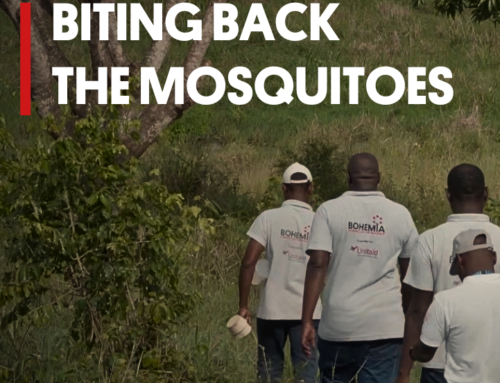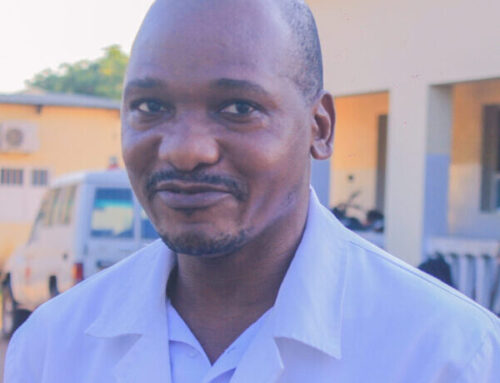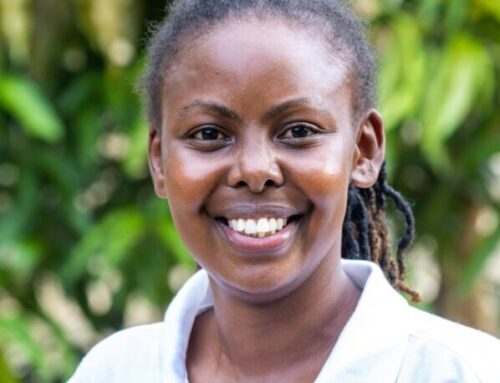Mary-Ann Richardson is BOHEMIA’s clinical trial manager. She initially joined the project as a contractor providing support and developing infrastructure for the clinical trial. In November 2019, she moved to Barcelona from Johannesburg to join the team in a full-time capacity. Since then, she has been involved in trial preparation activities. Now that the mass drug administration campaign is about to start, Mary-Ann will continue to supervise safety, ethics, and regulatory activities, plus the data generated by the site.
As a child, what did you want to be when you grew up? Were you already attract to the field of health?
Growing up I wanted to be a teacher, but changed my mind to be a lawyer in my last year at school. I soon found out that I didn’t want to be a lawyer either. I started working in clinical trials in an administrative position, providing secretariat support to an Ethics Committee and liaising with clinical trial sites. HIV trials had just started in South Africa, and for many people it was the only way they could access treatment.
The combination of science with ethics and the possibility of making a difference in people’s lives inspired me. I found my passion.
Conducting ‘Good Clinical Practice’, monitoring and auditing training has given me an opportunity to teach and learn from others, and the regulatory aspect ticks the legal box. So the childhood aspirations have been met, just in a very different way to what I had envisioned.
When you heard of BOHEMIA, what did you first think about using ivermectin for malaria control?
I was fascinated and excited. It was a novel concept to me, but the design made sense once I understood more. Ivermectin is an established medication with an excellent safety profile.
“We know that ivermectin does have an effect on mosquitoes. It is making those results tangible in an everyday, high burden setting that excites and humbles me.”
Humbling, because I am part of an exceptional team gathering evidence to contribute to a policy recommendation from the World Health Organisation for ivermectin as a first-in-class endectocide to reduce malaria transmission.
You are the clinical trial manager in the BOHEMIA project. What role does a clinical trial manager play?
The clinical trial manager is the right arm of the sponsor during a clinical trial — verifying that the site is conducting the trial in accordance with regulations and ‘Good Clinical Practice’ guidelines. They also ensure that the rights, safety and wellbeing of participants are protected and the trial data is verifiable and credible. I have been involved in trial preparation activities such as the procurement and shipment of trial medication, setup of safety management activities, monitoring requirements from the database, authoring and reviewing ‘Standard Operating’ and ‘Study Specific Procedures’, ensuring that all the ethics and regulatory approvals will be in place before we start the trial and working with the site on ‘Good Clinical Practice’ requirements for their setup and conduct of the trial. Once the trial starts, I continue with safety, ethics and regulatory activities and the review of data generated by the site. There is a lot of pressure to meet timelines and many moving pieces which make it challenging, but that is part of the job description and I am never bored.
The backbone activity of the project, the MDA, is about to start. What does this mean amid the complexities of the COVID-19 pandemic?
It has been challenging. The pandemic has had an impact on procurement and travel, and how we conduct activities. However, we have met these challenges so that we are able to start in the near term. It is possible to conduct MDA whilst adhering to COVID-19 safety protocols and our teams in the field are well-prepared. The site has done good community engagement, and I’m feeling confident that it will go well. It has helped that travel restrictions between Spain and Mozambique have been eased. Now we are able to visit the site in person and not just on Zoom. I find face-to-face interactions more productive and better for relationship building. We will continue to monitor the pandemic situation on a weekly basis on both continents, and plan for contingencies.
What do you think is needed to advance the fight against malaria, and how does BOHEMIA fit in?
The world needs more tools in the malaria toolbox. We read about the emergence of resistance to some of the current treatment, and I am still learning how adaptable mosquitos are in their behaviour. Cost is always a factor as middle-and-lower-income countries bear a higher burden of the disease. If successful, ivermectin could offer a new strategy and tool that could be relatively low in cost, with broad coverage.
“I believe we will bring about the change we want to see in reducing malaria infections when using ivermectin as a vector control tool in conjunction with current, as well as approved emerging interventions.”

Mary-Ann Richardson
BOHEMIA Clinical Trial Manager






